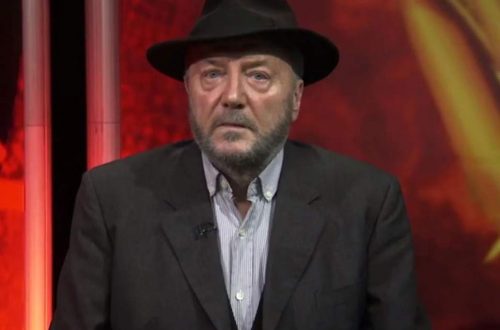Remember when the reliably gullible soon-to-be former Congresswoman Michele Bachmann claimed (based on a debunked Indian press report) that a visit to Asia by President Obama would cost a staggering $2 billion, including the diversion of 34 Navy ships for security?
(Fortunately for fans of Congressional Republican loopiness, Louie Gohmert of Texas was reelected this month with 77.5 percent of the vote.)
Well, Bachmann’s fever dream is Vladimir Putin’s reality.
Vladimir Putin is underlining his presence at a major summit of world leaders in Australia by stationing warships in waters off the country’s northeastern coast, prompting the Australian prime minister to angrily accuse Russia of trying to reclaim the “lost glories” of the Soviet Union.
The diplomatic drama, which has been simmering since a Malaysia Airlines plane was shot down over an area of Ukraine controlled by Russian-backed separatists in July, threatened to overshadow Australian Prime Minister Tony Abbott’s goal of keeping this weekend’s G20 summit focused on economic growth.
But Abbott, who had previously said he would physically confront the Russian president over the Flight 17 disaster that killed 298 people, including 38 Australian citizens and residents, did little to dampen tensions with his latest critique of Putin’s Russia.
In recent days, four Russian warships have entered international waters off the northeast Australian coast to coincide with Putin’s visit to Australia for the summit that brings together the leaders of the world’s 20 biggest industrialized and developing economies. Australia, in turn, sent three warships of its own to monitor them.
The Russian embassy said on Friday that Russia’s Pacific fleet was testing its range, and could be used as security for Putin.
Can anyone explain how Russian warships off the coast of Australia could protect Putin on the ground in Brisbane?
I don’t know how much it cost to send Putin’s naval escort. But with the price of oil dropping 30 percent since June, and possibly heading lower, the Russian regime might want to reconsider such profligate power plays.
The Wall Street Journal reports:
Russia’s economy is suffering from falling oil prices, as oil revenue makes up about half of the state budget revenue, while the sanctions imposed by the West in response to Moscow’s policy toward Ukraine have almost shut the global financial markets to Russian companies.
Russian inflation is at a three year-high, the ruble is trading at new lows, and capital outflows are expected to exceed $100 billion this year. The ruble is under downward pressure both from higher demand for dollars, as companies find it hard to borrow abroad, and from lower oil prices. It has already weakened by more than 20% since the start of the year.
Russian consumers are already paying the price as food costs soar compared to last year.
And Russian Finance Minister Anton Siluanov said in September that the government would raid the state pension fund to prop up cash-starved state companies.
But Putin clearly has his priorities. And beside chest-thumping displays of naval power and expansionist military adventures in Ukraine, one of them is the Russian government propaganda outlet RT (formerly Russia Today).
According to The Times of London, RT will receive a 30 percent budget increase (to about $400 million) for 2015.
Whether that means George Galloway’s £76,800 ($122,880) annual salary from RT will go up, I can’t say. But I’m sure the Russian people will be pleased to put up with higher food prices and less secure pensions if it means, among other things, that Galloway can continue to spread his pro-Putin and anti-Western message to the world.
